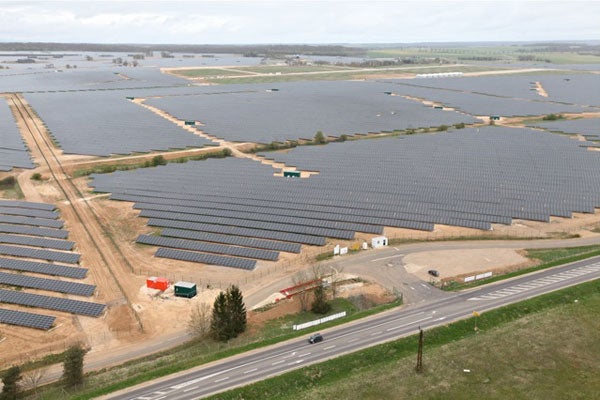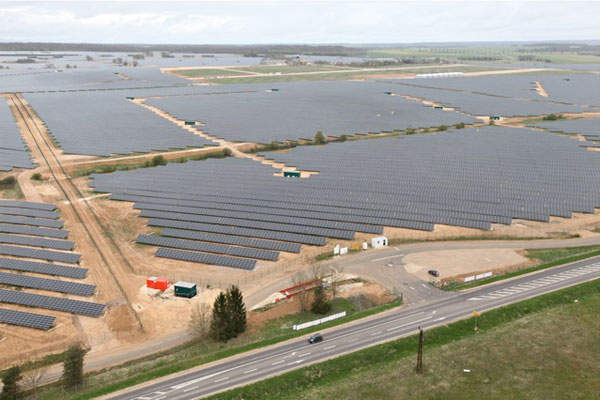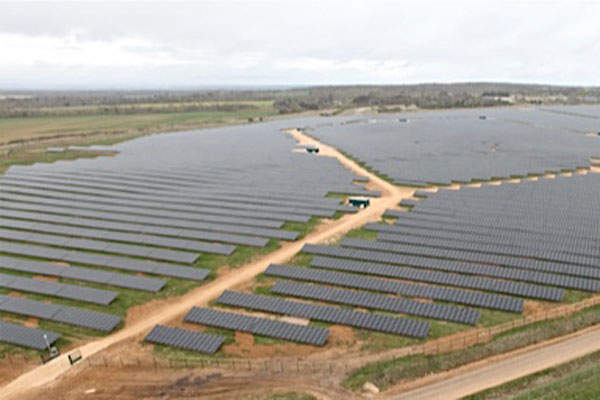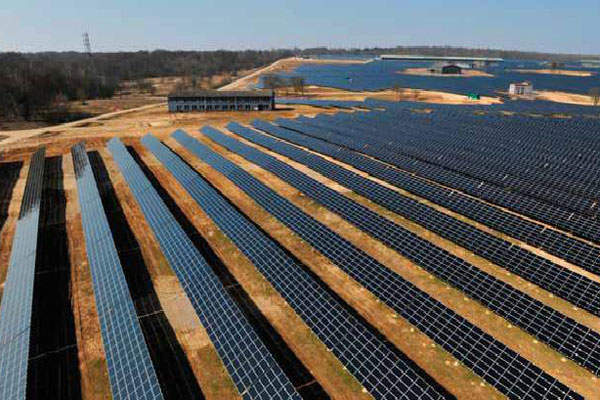
The Toul-Rosieres Solar Park in the Lorraine region is the largest photovoltaic power station in France, with an installed capacity of 115MW.
The solar park has an annual output of approximately 60GWh per year. It supplies electricity sufficient for 55,000 people and eliminates 4,600 tonnes of CO² emissions.
EDF Energies Nouvelles initiated and developed the Toul-Rosieres solar plant. The company will maintain and operate the plant through its subsidiary EDF En Services for a period of 20 years.
Toul-Rosieres solar project location and plant details
The Toul-Rosieres solar park consists of three units including a 55MW unit, a 36MW unit and a 24MW unit. It has been developed on a former military airbase extending over 520ha.
EDF Energies Nouvelles took the site on lease for 22 years. It renewed the air base completely by demolishing 280 buildings, removing asbestos from around 170 buildings and clearing approximately 8,000t of polluted soil. It also completed a decontamination of the site.
The construction works commenced in June 2011. The solar park was officially inaugurated in May 2012 and the commercial operations began in June 2012.
Ownership and financing of the Toul-Rosieres solar plant
Mitsubishi Corporation purchased 50% of the first unit of the plant (55MW) through its subsidiary, Diamond Generating Europe.
Marguerite Fund purchased the 36MW unit II in 2012. It financed the construction of the solar park through a term loan facility taken from BNP Paribas and Crédit Agricole Corporate and Investment Bank.
Sonnedix purchased 24MW Toul 3 project which includes 500,000 First Solar panels and SMA inverters. HSH Nordbank provided non-recourse project financing to Sonnedix for the construction of the Toul 3 solar plant.
Photo voltaic modules installed at Toul-Rosieres solar park
The solar park is installed with approximately 1.5 million thin-film photovoltaic modules equipped with multi-contact connectors and SMA inverters. The next-generation photovoltaic thin-film panels are much more efficient than conventional silicon-based modules.
The CdTe film modules have better energy yield and power rating when compared to conventional solar modules. The advanced thin-film solar module technology is cost-efficient and has a smaller carbon footprint than other modules. The technology also benefits through faster payback.
The solar park is also installed with approximately 8,000 branch cable leads, 4,800 cable assemblies, 23,000 pairs of MC3 connectors and 100,000 extra MC4 connectors.
Power generation and transmission from the Toul-Rosieres solar plant
The solar rays concentrated on the thin film photovoltaic modules are transformed into a continuous electric current. The direct current is passed to a power supply system installed at the plant site and converted into alternating current (AC). The transformer at the plant site controls the voltage levels and accumulates the electricity to a grid.
The entire power generated at the plant is purchased by EDF through a Power Purchase Agreement valid for a period of 20 years.
Toul-Rosieres solar park construction
The power plant construction included the division of plant site into tranches and installation of oblique steel / aluminum structures to attach the solar panels. The tranches were attached to an anchoring system for maintenance and control.
The power plant created approximately 700 jobs during the construction phase. Around 12,000 modules were installed on a single day ensuring early completion of the project.
Contractors / suppliers involved with Toul-Rosieres solar plant
First Solar was awarded the contract for supplying the solar PV panels for the Toul-Rosieres solar park.
Related content
Total and SunPower commission photovoltaic plant in France
SunPower Corp and French oil company Total have commissioned a new photovoltaic solar panel manufacturing and assembly plant in De Vernejoul industrial park in Porcelette, France.
Amps with attitude: Bizarre and brilliant alternative power sources
Designers everywhere are generating new industry trends with their unusual power devices.







